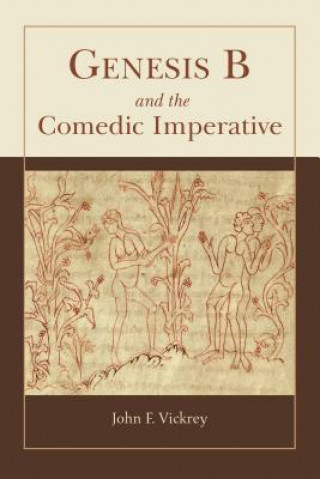
Kód: 05160942
Genesis B and the Comedic Imperative
Autor John F. Vickrey
Readers of Old English would generally agree that the poem Genesis B, a translation into Old English of an Old Saxon (that is, continental) retelling of the story of the Fall, is a vigorous and moving narrative. They would disagre ... celý popis
- Jazyk:
 Angličtina
Angličtina - Vazba: Pevná
- Počet stran: 342
Nakladatelství: Lehigh University Press, 2015
- Více informací o knize

3576 Kč

Skladem u dodavatele v malém množství
Odesíláme za 10-14 dnů
Potřebujete více kusů?Máte-li zájem o více kusů, prověřte, prosím, nejprve dostupnost titulu na naši zákaznické podpoře.
Přidat mezi přání
Mohlo by se vám také líbit
-

Vagabond (VIZBIG Edition), Vol. 1
541 Kč -

Enemies of Progress
536 Kč -

Court Martial Process
1842 Kč -

Seven Words of Love
567 Kč -

Masada Complex
515 Kč -
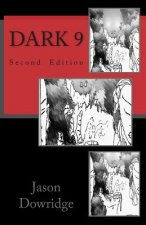
Dark 9
211 Kč -

Indian Sex Life
1010 Kč
Dárkový poukaz: Radost zaručena
- Darujte poukaz v libovolné hodnotě a my se postaráme o zbytek.
- Poukaz se vztahuje na celou naši nabídku.
- Elektronický poukaz vytisknete z e-mailu a můžete ihned darovat.
- Platnost poukazu je 12 měsíců od data vystavení.
Více informací o knize Genesis B and the Comedic Imperative
Nákupem získáte 358 bodů
 Anotace knihy
Anotace knihy
Readers of Old English would generally agree that the poem Genesis B, a translation into Old English of an Old Saxon (that is, continental) retelling of the story of the Fall, is a vigorous and moving narrative. They would disagree, however, as to the meaning of the poem. Some hold that it reflects an orthodox Christian viewpoint and others claim that it assumes a distinctly unorthodox position in portraying Adam and Eve as morally culpable in their disobedience but merely tricked into disobedience through the wiles of the Devil's agent. The study Genesis B and the Comedic Imperative, examining these contradictory readings, infers that the poem is essentially orthodox, that it demonstrates sufficiently the moral culpability of Adam and Eve, and that it departs from orthodoxy only insofar as it conveys he strong impression that Adam and Even will undertake what amounts to Christian penance, leading them eventually to Heaven. The poem thereby attains the happy ending typical of early medieval Christian narrative. Hence the titular "Comedic Imperative." The inference of orthodoxy follows as a nigh-inevitable conclusion of the interpretation of several motifs: the poem's pervasive allegorical and tropological bent (as first noted by A. N. Doane) and its culturally imbued martiality. The argument depends heavily upon philological inquiry and on examination of prevailing beliefs and attitudes of contemporaneous Frankish society, religious and civil, leading to the reinterpretation of crucial passages. Of these, most notably, is the passage in which Adam, in refusing the Tempter's invitation to eat the fruit, speaks of a false vision of heaven that the Tempter has given as a reward for succumbing to his promises. Other passages that have impeded critical perception of the poem's significance are also examined, such as the notorious micel wundor clause (lines 595-98) and the pseudo-gnomic declaration swa hire eaforan sculon after lybban (623-35). In sum, Genesis B is appropriately included with the other comedic poems in the Junis 11 manuscript.
 Parametry knihy
Parametry knihy
Zařazení knihy Knihy v angličtině Literature & literary studies Literature: history & criticism Literary studies: poetry & poets
3576 Kč
- Plný název: Genesis B and the Comedic Imperative
- Autor: John F. Vickrey
- Jazyk:
 Angličtina
Angličtina - Vazba: Pevná
- Počet stran: 342
- EAN: 9781611461671
- ISBN: 1611461677
- ID: 05160942
- Nakladatelství: Lehigh University Press
- Hmotnost: 635 g
- Rozměry: 231 × 152 × 23 mm
- Datum vydání: 12. February 2015
Oblíbené z jiného soudku
-

Best Poems of the English Language
410 Kč -

Come Close
90 Kč -

Beowulf
286 Kč -
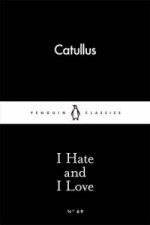
I Hate and I Love
90 Kč -
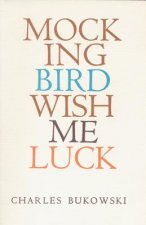
Mockingbird Wish Me Luck
249 Kč -
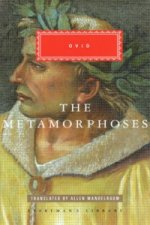
Metamorphoses
437 Kč -
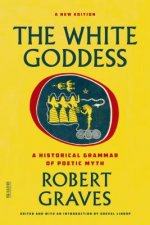
WHITE GODDESS
485 Kč -

Selected Poems
461 Kč -

And Still I Rise
303 Kč -
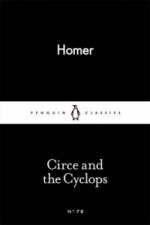
Circe and the Cyclops
90 Kč -

O Cruel Alexis
75 Kč -
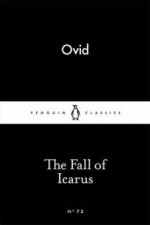
The Fall of Icarus
90 Kč -

Complete Poems of Sappho
405 Kč -

Odyssey
430 Kč -

Haiku
276 Kč -
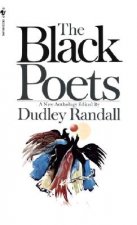
Black Poets
255 Kč -

Selected Poems
567 Kč -
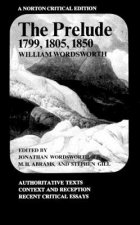
Prelude
548 Kč -

On Entering the Sea
473 Kč -

Singer of Tales
750 Kč -

Hatred of Poetry
409 Kč -

Walter Benjamin and the Aesthetics of Power
1681 Kč -

Poetry Of Jaroslav Seifert
542 Kč -

Norton Anthology of Poetry
1619 Kč -

Ode Less Travelled
306 Kč -

Selected Poems of Emily Dickinson
255 Kč -
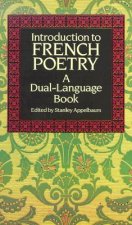
Introduction to French Poetry
268 Kč -

Decreation
464 Kč -

Letters to a Young Poet
282 Kč -
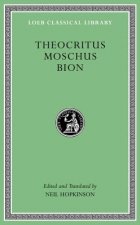
Theocritus. Moschus. Bion
820 Kč -

Come On In!
410 Kč -

Sir Gawain and the Green Knight
248 Kč -

Hatred of Poetry
303 Kč -
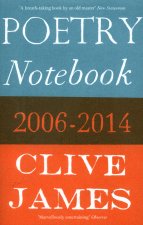
Poetry Notebook
361 Kč -

Collected Poems of William Carlos Williams
548 Kč -

Collected Poems of William Carlos Williams, 1939-1962
543 Kč -

Skeleton Plays Violin
605 Kč -

Collected Poems Of Kenneth Patchen
652 Kč -

Emily Dickinson
249 Kč -

5-7-5 The Haiku Of Basho
1169 Kč -

American Scream
926 Kč -

Alexander Pope
143 Kč -
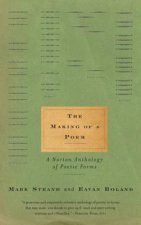
Making of a Poem
426 Kč -

Introduction to German Poetry
219 Kč -

Life of a Poet
775 Kč -

How to Read Chinese Poetry Workbook
1136 Kč -

Pagan Portals - Pathworking through Poetry - Pagan Pathworking through poetry: exploring, knowing, understanding and dancing with the wisdom the bard
333 Kč -

Night Torn Mad With Footsteps
276 Kč -
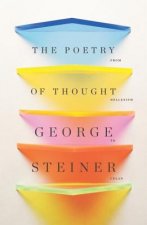
Poetry of Thought
360 Kč
Osobní odběr Praha, Brno a 12903 dalších
Copyright ©2008-24 nejlevnejsi-knihy.cz Všechna práva vyhrazenaSoukromíCookies


 Vrácení do měsíce
Vrácení do měsíce 571 999 099 (8-15.30h)
571 999 099 (8-15.30h)